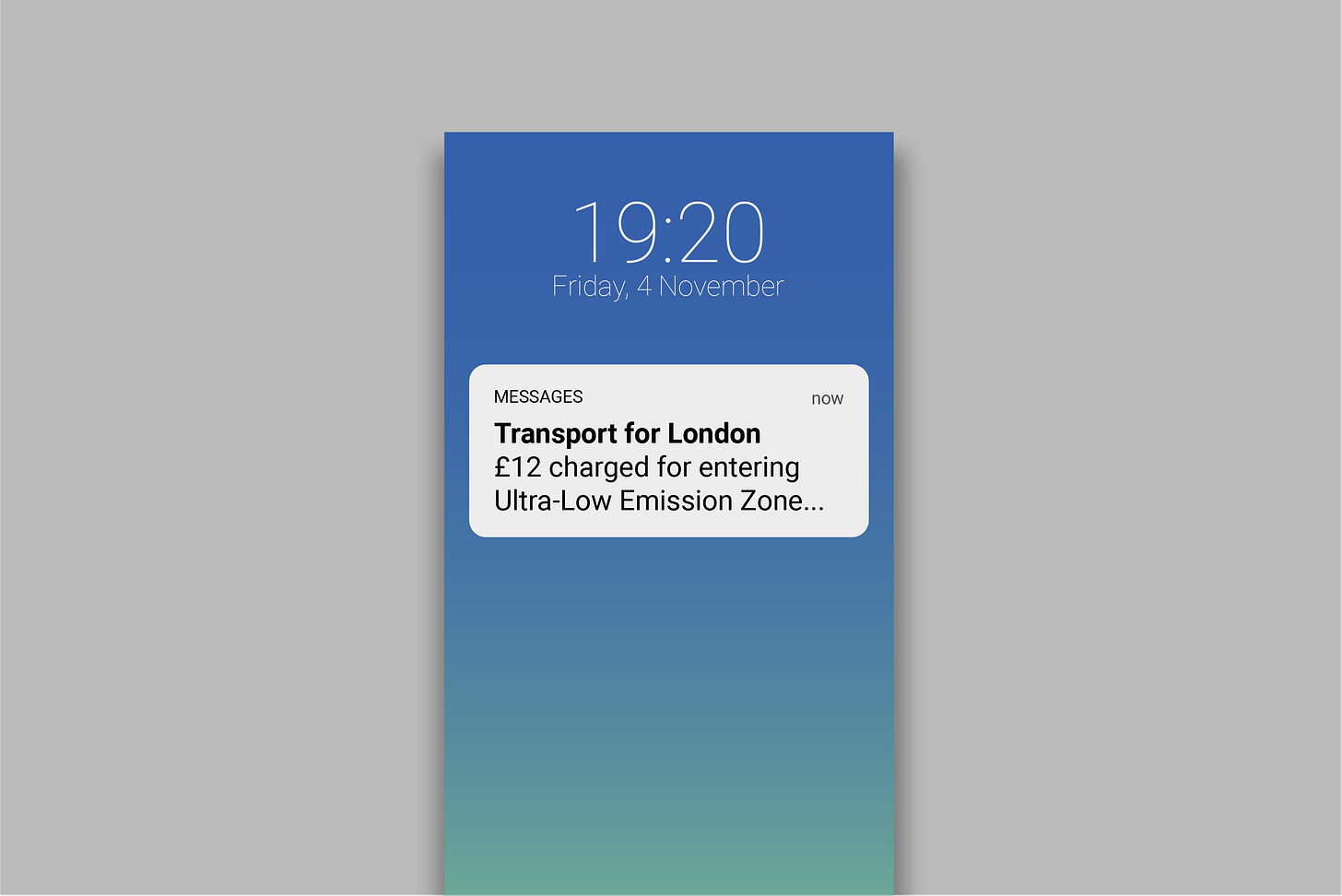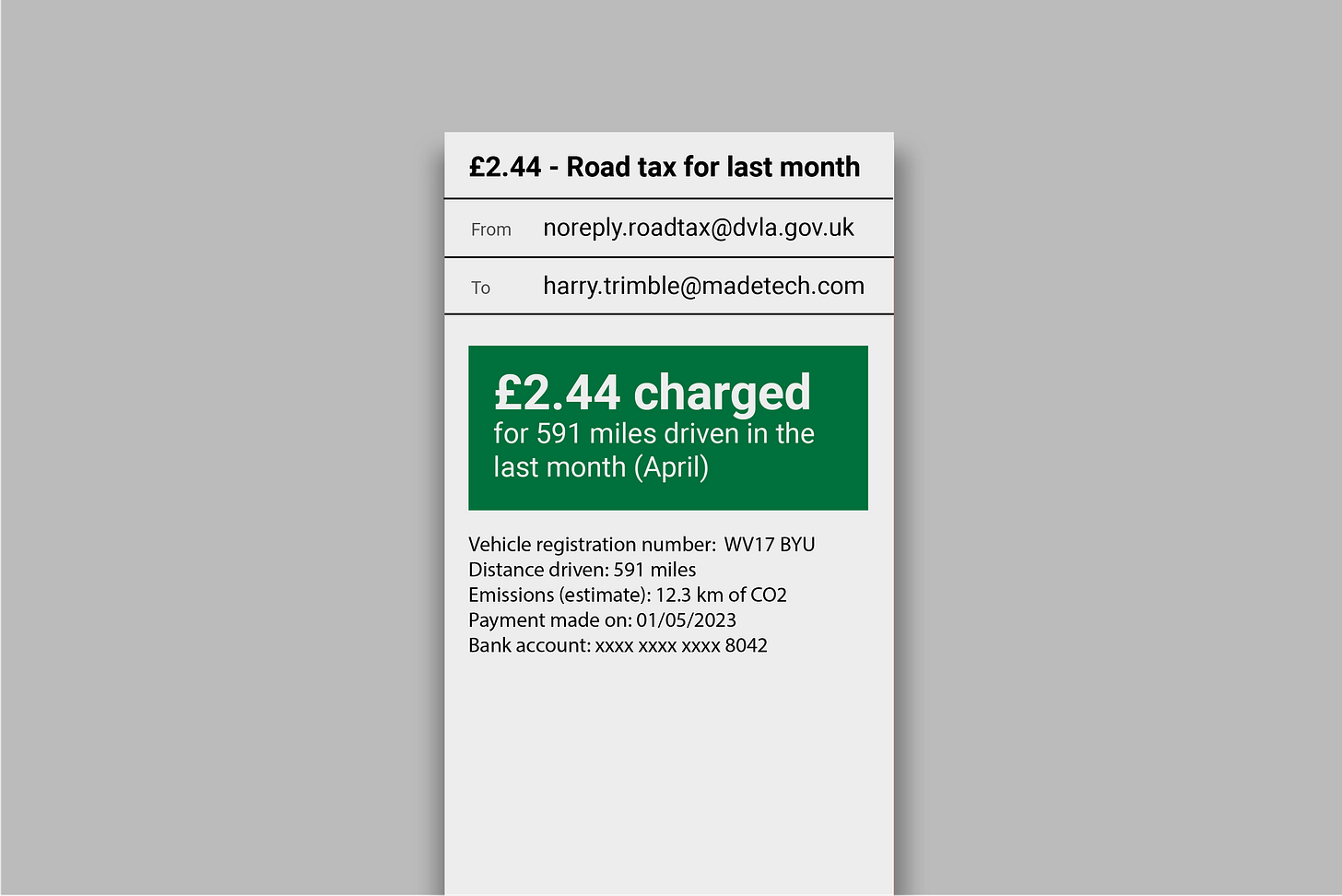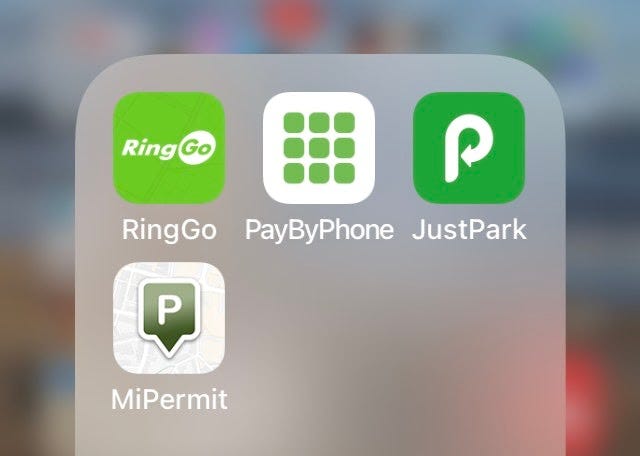I wish I could link together my carbon, car and cash across different public services. I’ve done some drawings to show what I mean.
Clear clean air zones
More cities are introducing taxes to improve air quality. Such as the Clean Air Zone Portsmouth City Council began in November. In October I drove into London’s new Ultra-Low Emission Zone to visit family for the weekend. I wasn’t aware of the new tax, having moved out of London during the pandemic. I panicked while driving, worried I’d get fined or worse, getting taken to court if a fine letter was sent to somewhere I don’t live anymore (we’ve moved a lot recently).
If ANPR cameras and publicly maintained databases were more joined up via APIs, this situation could have been different.
Transport for London does have Auto Pay to automatically charge people. Again I wasn’t aware the charge existed in the first place or knew when I’d next in be London, so was it worth setting up? As it turned out I didn’t have to pay the charge. My car was too young, but I only found out days after when trying to pay. This could be different too.
Taxing mileage (and the carbon that comes with it)
Taxing drivers for how much they use a vehicle might not be limited to cities. For example, Parliament’s Transport Committee has just called for taxing vehicles by mileage driven.
Many cars are connected to networks one way or another now, so there are potential ways to share mileage data automatically to calculate tax. Even without a connection, mileage data is already collected when a car gets it’s yearly MOT safety check.
It’s easy to imagine what this could look like for drivers.
Faster fines
In July I drove in a bus lane without realising it and was fined. I deserved the fine. Roads should prioritise public transport. For example, travelling by bus produces ten times fewer emissions than by car. The trouble was it was THREE months later Southwark Council sent me a letter telling me about the fine. Firstly letters are so easily missed or lost, especially when moving house. Then reading the letter in October about something in July, I was filled with panic I was already behind on paying.
With infrastructure linked, people could be aware of fines in seconds.
Linking a bank account across services
You can already set up automatic payments for yearly road tax. Why not for all public sector vehicle taxes and fines?
It could be as simple as adding another step to the taxing your vehicle service.
API for council parking payments
Cars linked to banks accounts could make services to pay for council parking and permits simpler to use and build.
Enter your vehicle registration number, location, followed by a texted security code and you’re done.
There are nearly 400 local councils in the UK, with different parking systems. Many now use third-party apps to collect parking revenue. In my experience, they’re all green and each one needs payment details setting up (and updating when cards expire).
By the looks of it, all of the apps use the Vehicle Enquiry Service API to get car details. Why not go a step further and get payments too?
There could be a ‘Vehicle Payment API’ for councils and parking app developers to integrate with.
For councils without access to software engineers to join up systems, they could use a service that just needs a council email and car park addresses or location codes. The Vehicle Enquiry Service API, ‘Vehicle Payment API’ and GOV.UK Pay could do all the hard work.
Real-time impact of policies
Cars produce 14.7% of all greenhouse gas emissions in the UK. It’s good therefore some public policies are partly intended to make it harder for people in certain situations to own a car. But how good? What impact do clear air zones, emission taxes, bus lanes, road tax, parking zones have on the use of cars?
If existing digital infrastructure is more linked up, public servants could see the cause and effect of different transport policies much faster.
This would create further opportunities for faster, more agile policymaking like we’ve come to see during the pandemic.
Very feasible thanks to hard work behind the scenes
While these ideas are just thought experiments, they’re more than technically feasible. This is thanks to lots of hard work thanks behind the scenes over the last decade or so. Different public sector organisations have been modernising legacy technology. As a result, the public hardware and data infrastructure is already in place and in use and is ready for even more joined up.
For example, the DVLA’s Vehicle Enquiry Service API would have been unfeasible ten years ago. The hard work to make and maintain it has made new services possible.
The ideas I’ve mentioned are just a few examples of what’s possible. Both for reducing the burden on drivers to comply with rules and meeting environmental and tax revenue targets.












